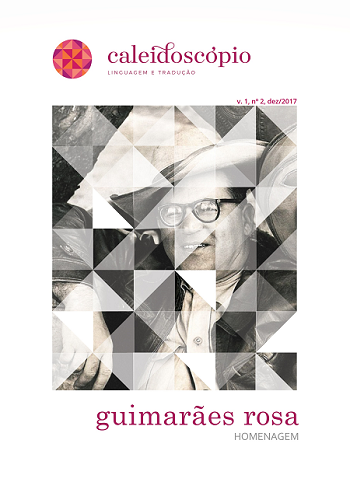La traduction littéraire ou l'art de « faire refleurir les déserts du sens »
DOI:
https://doi.org/10.26512/caleidoscopio.v1i2.7091Palavras-chave:
Literary translation;, Creativity;, Rewriting;, History of translating;, Poetics.Resumo
Literary translation is essentially a creative process of rewriting. The translator is the author of the translation text, even if he is not the author of the original text. A translation is never a clone of the original. In translating, we do not say the same thing differently, we say something else differently, as Henri Meschonnic put it. Concepts borrowed from the field of history of translation, like historicism, passive retranslation and active retranslation are used to go against those who still erroneously think that the meaning of a literary text lies only in its words, and claim that “we translate words because there is nothing else to translate”. Against this linguistic and literary approach, the poetics approach takes into account the fact that, between the author and the reader, the translator is an active and creative agent in the process. Translating is always a “ménage à trois”.
Downloads
Downloads
Publicado
Como Citar
Edição
Seção
Licença
Declaração de Direito Autoral
- Autores mantém os direitos autorais e concedem à revista o direito de primeira publicação, com o trabalho simultaneamente licenciado sob a Licença Creative Commons Attribution que permite o compartilhamento do trabalho com reconhecimento da autoria e publicação inicial nesta revista.
- Autores têm autorização para assumir contratos adicionais separadamente, para distribuição não-exclusiva da versão do trabalho publicada nesta revista (ex.: publicar em repositório institucional ou como capítulo de livro), com reconhecimento de autoria e publicação inicial nesta revista.
- Autores têm permissão e são estimulados a publicar e distribuir seu trabalho online (ex.: em repositórios institucionais ou na sua página pessoal) a qualquer ponto antes ou durante o processo editorial, já que isso pode gerar alterações produtivas, bem como aumentar o impacto e a citação do trabalho publicado (Veja O Efeito do Acesso Livre).




.png)
